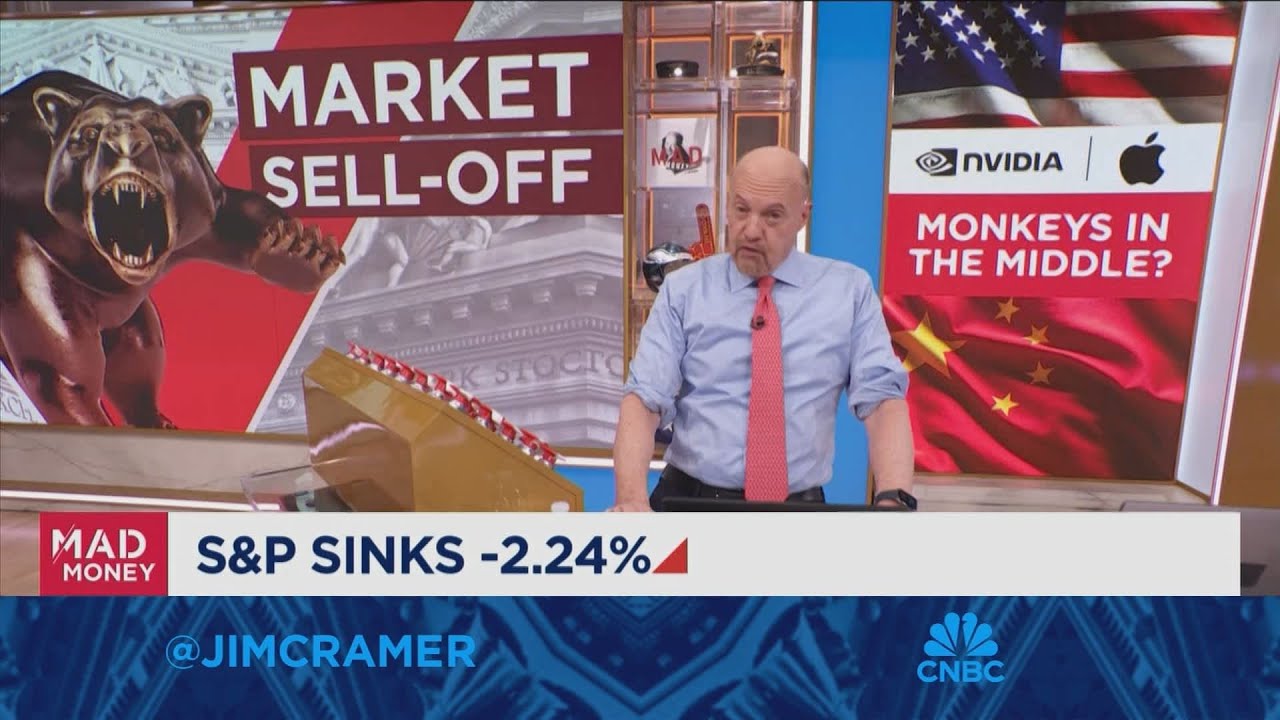Jim Cramer discussed the challenges Nvidia faces due to changing U.S.-China trade relations, highlighting that the company, while innovative and integral to various industries, inadvertently sold chips to what is now considered an “enemy nation.” He criticized the U.S. government’s punitive measures against successful companies like Nvidia, arguing for a clearer and more consistent trade policy to support American businesses in a complex geopolitical landscape.
In a recent discussion, Jim Cramer addressed the challenges faced by companies like Nvidia in the current geopolitical climate, particularly regarding tariffs and trade relations with China. He emphasized that the difficulties stem from the U.S. government’s actions, which are often at odds with the interests of shareholders. Cramer noted that the stock market experienced significant declines, with the Dow dropping 700 points and the S&P and Nasdaq also suffering substantial losses, largely due to the ongoing tariff situation and the broader trade embargo with China.
Cramer highlighted Nvidia as a prime example of a company caught in this predicament. He praised Nvidia for its innovative technology and leadership under CEO Jensen Wang, describing its advanced chips as crucial to various industries, including genetics, robotics, and self-driving cars. He pointed out that Nvidia’s products are highly sought after and that the company has become integral to the new industrial revolution, particularly in the realm of artificial intelligence.
The crux of Cramer’s argument is that Nvidia, while operating in good faith and focusing on business growth, inadvertently found itself selling to what is now considered an “enemy nation.” He expressed understanding for Nvidia’s lack of awareness regarding the geopolitical implications of their sales, noting that the rules of engagement with China have changed significantly under the current and previous U.S. administrations. Cramer argued that the business environment was more favorable for companies like Nvidia in the past, leading to a lack of foresight about the potential consequences of their dealings with China.
Cramer also reflected on the broader implications of these trade dynamics, suggesting that the U.S. government’s agenda is often misaligned with the interests of American businesses and their shareholders. He criticized the punitive measures imposed on companies that have successfully integrated into the global market, highlighting the irony that these businesses are now being penalized for their success in becoming indispensable to their host countries.
In conclusion, Cramer urged viewers to consider the complexities of the current economic landscape, where companies like Nvidia are navigating a challenging environment shaped by shifting political attitudes and trade policies. He called for a more nuanced understanding of the relationship between business and government, emphasizing the need for clarity and consistency in trade regulations to support American innovation and competitiveness on the global stage.
